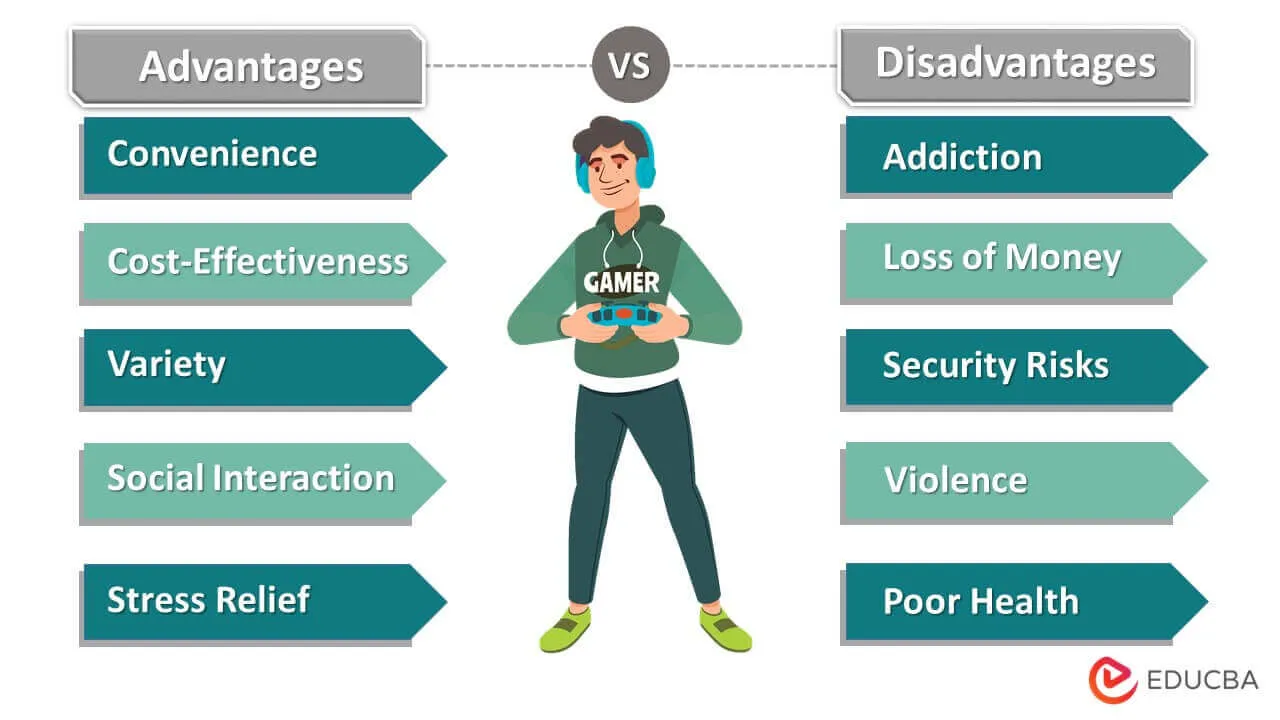The world of esports has been rapidly growing in popularity over the past decade. With professional players competing in popular video games like League of Legends, Counter-Strike: Global Offensive, and Fortnite, it’s no surprise that the industry has caught the attention of millions of viewers and investors alike. As the audience for esports continues to expand, so does the interest in betting on these competitions.
But with any form of gambling, legality is always a concern. Many people may wonder if esports betting is legal in the United States, and if so, what are the regulations surrounding it? In this guide, we’ll take an in-depth look at the current state of esports betting in the US, from its history to potential future developments.
History of Esports Betting in the US

Esports betting in the US can be traced back to the early 2000s, where it first emerged in Asian countries like South Korea and China. With the rise of online multiplayer games, such as StarCraft and League of Legends, betting on matches became more prevalent, especially within the gaming community. However, it wasn’t until around 2010 when esports betting truly took off in the US.
In 2010, the first esports-specific betting site, Pinnacle Sports, was launched in the US. This site allowed players to bet on professional matches for popular games like StarCraft II and Dota 2. Despite its early success, Pinnacle Sports faced legal issues and had to shut down its US operations in 2014 due to the Unlawful Internet Gambling Enforcement Act (UIGEA). This law, enacted in 2006, prohibits interstate transactions related to online gambling.
Despite this setback, the demand for esports betting continued to grow, leading to the creation of new platforms and the expansion of existing ones. In 2015, esports betting platform Unikrn received a license from the Isle of Man Gambling Supervision Commission, making it the first fully licensed and regulated esports betting site in the world. This was a significant development for the industry, as it showed that esports betting could be done legally and ethically.
Since then, many other platforms have emerged, offering various forms of esports betting to audiences all over the world. However, the legality of these operations in the US remains a complicated matter. Let’s take a closer look at the current state of esports betting in the country.
Current State of Esports Betting in the US
The answer to whether or not esports betting is legal in the US is not a simple yes or no. While there are currently no federal laws prohibiting esports betting, individual states have their own regulations and restrictions on the practice.
As mentioned earlier, the UIGEA prohibits interstate transactions related to online gambling. This law was primarily aimed at traditional sports betting and online casinos but can also be applied to esports betting. However, due to the lack of specific legislation regarding esports, the legality of this form of betting remains somewhat ambiguous.
Currently, only a handful of states have explicitly legalized and regulated esports betting. These states include Nevada, New Jersey, Colorado, Tennessee, Virginia, and West Virginia. In these states, players can bet on esports events through licensed and regulated sportsbooks, both online and in physical locations.
On the other hand, some states have clear laws or regulations against esports betting, including Washington, which has made it illegal to bet on any video game competitions, and Connecticut, which specifically prohibits betting on esports events. The remaining states do not have any specific laws or regulations related to esports betting, leaving it up to interpretation or potential future developments.
Regulations and Restrictions on Esports Betting

While the legality of esports betting may vary from state to state, there are some general rules and restrictions that apply to all forms of gambling in the US. These regulations aim to protect the players, prevent fraud, and ensure fair play. Let’s take a closer look at some of these regulations and restrictions.
Age Restrictions
In all states where esports betting is legal, individuals must be 21 years or older to participate in any form of gambling. This age restriction applies to both physical sportsbooks and online platforms. Additionally, players must verify their age and identity before they can place bets on any matches.
Anti-Corruption Measures
To prevent match-fixing and other forms of fraud, esports betting platforms must have strict anti-corruption measures in place. This may include prohibiting players, coaches, and other individuals with inside information from betting on matches, as well as monitoring betting patterns for any suspicious activity. Platforms also work closely with tournament organizers and game developers to ensure the integrity of the competitions.
Responsible Gambling
Similar to traditional sports betting, esports betting platforms have a responsibility to promote responsible gambling practices. This includes allowing players to set deposit and bet limits, as well as providing resources for those who may have a gambling problem.
Types of Esports Betting
In the world of traditional sports, there are various types of bets that players can make, from moneyline bets to prop bets. The same applies to esports betting, although the options may vary depending on the platform and the game being played. Here are some of the most common types of esports bets:
Match Winner
The most straightforward type of bet is to predict the winner of a particular match. This can be done for individual games within a series or for the entire series itself. For example, in a League of Legends tournament, you could bet on which team will win a single game or which team will win the entire best-of-three series.
Handicap Bets
Handicap bets are commonly used in esports betting when there is a significant skill gap between two teams or players. In this type of bet, one team will be given a handicap in the form of a predetermined number of points or rounds. For example, if one team is significantly favored to win in a best-of-five series, they may be given a -2.5 handicap, meaning they need to win by three games for the bet to pay out.
Over/Under Bets
Over/under bets involve predicting whether a particular event will happen more or less than a set number. This could include the total number of kills in a League of Legends match or the number of goals scored in a Rocket League game.
Prop Bets
Prop bets, short for proposition bets, are wagers on specific events or outcomes within a match that may not directly impact the final result. These can include things like which player will get the first kill in a Counter-Strike match or how many maps will be played in a Dota 2 series.
Advantages and Disadvantages of Esports Betting

As with any form of gambling, there are both pros and cons to esports betting. While it may provide entertainment and potential profits for players, it also comes with its own set of risks. Let’s take a closer look at some of the advantages and disadvantages of esports betting.
Advantages
- Variety: With countless games and tournaments to choose from, there is no shortage of options when it comes to esports betting. This allows players to find their niche and bet on the games they enjoy and understand the most.
- Accessibility: Unlike traditional sports betting, which often requires physical attendance at a sportsbook, esports betting can be done entirely online. This makes it accessible to a broader audience, especially during the pandemic when in-person gatherings are limited.
- Potential for Profit: As with any form of gambling, there is always the chance to win big with esports betting. With careful research and knowledge of the game and teams, players may be able to make more informed bets, increasing their chances of winning.
- Entertainment Value: For many people, betting on esports adds an extra layer of excitement and interest to the competitions. Even if they don’t win, the thrill of following a match and cheering on their chosen team can provide entertainment value.
Disadvantages
- Risk of Addiction: As with any form of gambling, there is always a risk of addiction and potential financial harm. Esports betting should only be done in moderation and with a clear understanding of the risks involved.
- Unpredictability: While research and knowledge can increase the chances of winning, ultimately, the outcome of an esports match is unpredictable. This could lead to significant losses for players who may have bet on the favored team but still end up losing.
- Limited Regulations: As mentioned earlier, regulations and restrictions on esports betting in the US are not as well-defined as traditional sports betting. This may leave players with less protection and a higher risk of encountering fraudulent operations or scams.
Future of Esports Betting in the US
The future of esports betting in the US is uncertain, as it largely depends on state legislation and potential developments in federal laws. However, with the continued growth and popularity of esports, it’s likely that the industry will continue to expand and attract more attention from both audiences and regulators.
One notable development that could shape the future of esports betting in the US is the potential legalization of online sports betting at the federal level. In 2018, the Supreme Court struck down the Professional and Amateur Sports Protection Act (PASPA), which previously prohibited most states from legalizing sports betting. This ruling has opened the door for individual states to legalize online sports betting, and some experts believe that esports betting may fall into this category in the future.
Additionally, as more states legalize and regulate esports betting, it’s possible that there will be more standardization and consistency in regulations and restrictions. This could help protect players and promote responsible gambling practices.
Conclusion
In conclusion, while esports betting is not explicitly legal or illegal in the US, it largely depends on the state in which you reside. Currently, only a handful of states have legalized and regulated esports betting, while others may have restrictions or prohibitions in place. As the industry continues to grow and evolve, it’s likely that we’ll see more developments and changes in the future.
If you’re interested in participating in esports betting, it’s crucial to research your state’s laws and regulations and choose a licensed and reputable platform. As with any form of gambling, remember to bet responsibly and never risk more than you can afford to lose.
